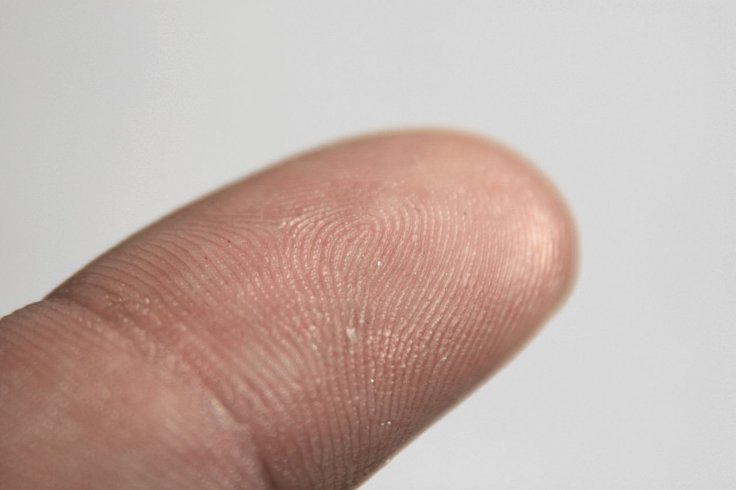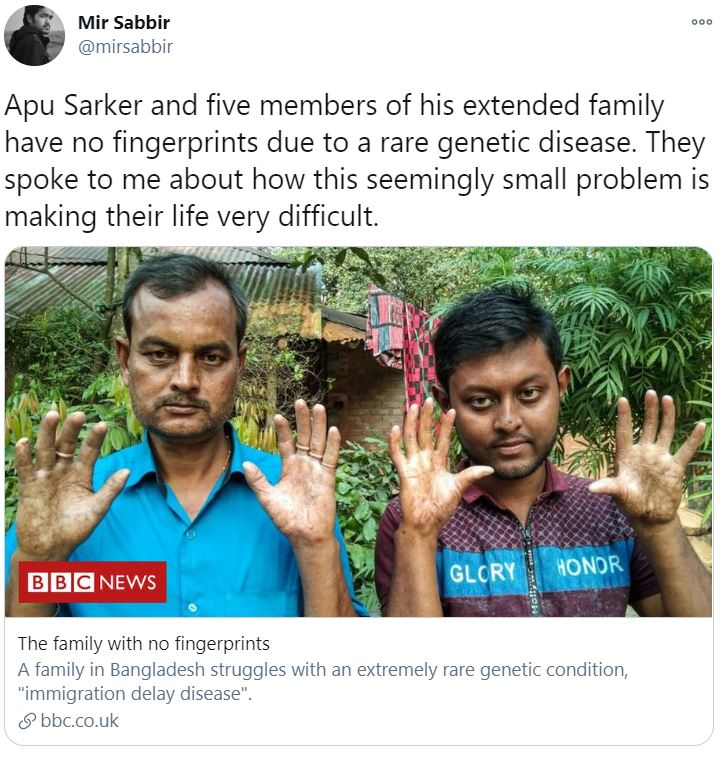In Natore, Bangladesh, the men in the Sarker family are at loggerheads with the government officials. They have been denied a driving license and mobile SIM cards. With much difficulty and several round trips to government offices, they were issued passports and National IDs. The reason for denial was rather unique — even to the government officials. The fact that all these services require fingerprints made it a problem for both parties.
In most countries, fingerprint verification has been made mandatory. To get a passport, SIM cards, national IDs, citizens require to provide thumb impressions that would be stored in the government database so that they could be verified to confirm identity. However, the men in the Sarker family — Amal Sarker, Apu Sarker, Anu Sarker — are in a fix as they lack "fingerprints".
"They seemed confused when I went to buy a SIM, their software kept freezing every time I put my finger on the sensor," Apu told the BBC. All the men in the family now need to use SIM cards issued in Apu's mother's name.

Adermatoglyphia
The men in the family suffer from a rare condition called Adermatoglyphia. It is the result of a rare genetic mutation in the SMARCAD1 gene leading to birth without the most distinguishing feature — fingerprint. The condition came to light only in 2007 when a Swiss woman in her late twenties was facing difficulty entering the U.S. While her face matched with the passport, she had no fingerprints to match.
The woman contacted Swiss dermatologist Dr Peter Itin, who found that the woman's eight other family members also didn't have any fingerprints. Itin worked with fellow dermatologist Eli Sprecher and a graduate student Janna Nousbeck to analyze the DNA of the woman's family. It was only in 2011 that they zeroed in on the SMARCAD1 gene that mutated in those nine family members. The strange fact is that the mutation doesn't cause any other problem apart from resulting in a lack of ridges on the skin of fingers, toes, palms and sole.
The condition is so rare that apart from a few families around the world, no one else has been identified to suffer from it. The Sarker family is one among them. "Isolated cases are very rare, and no more than a few families are documented," Prof Itin told the BBC, dubbing the disorder as "immigration delay disease".

Tough Time Convincing People
Like the Swiss family, the Sarker family too had a tough time convincing people that such a condition was not made up and it really did exist. After several trips to the passport office in Dhaka, Amal and his brother Gopesh were able to get passports upon furnishing medical certificates. Gopesh also had to convince his office to use old signing a registry system — just for him — instead of biometrics to mark his attendance.
As for doctors in Bangladesh, they were baffled at first. It was the first known case of Adermatoglyphia in the country and they had diagnosed the family as congenital palmoplantar keratoderma that causes dry skin and reduced sweating on palms and feet. Professor Itin said the condition could have caused by Adermatoglyphia.
While Professor Itin is happy to help the family with genetic testing and other medical examinations, the family of farmers doesn't have the means nor the fingerprints to travel to Switzerland. For now, they are in a heap of trouble for no fault of theirs. But a medical certificate has helped a bit. The Bangladeshi government has issued them national ID cards without fingerprints but with retinal scans and facial recognition.
As for Apu, who is a young man and requires to ride a two-wheeler for daily works, he is often stopped by the traffic cops and fined for riding without a driving license. Despite passing the driving tests, Apu could not get a license due to a lack of fingerprints. The system is yet to show some compassion for his condition.
"It is not in my hands. It is something I inherited. But the way me and my sons are getting in all sorts of problems, for me this is really painful," said Amal as he and his two sons await the system to adapt to their condition.









